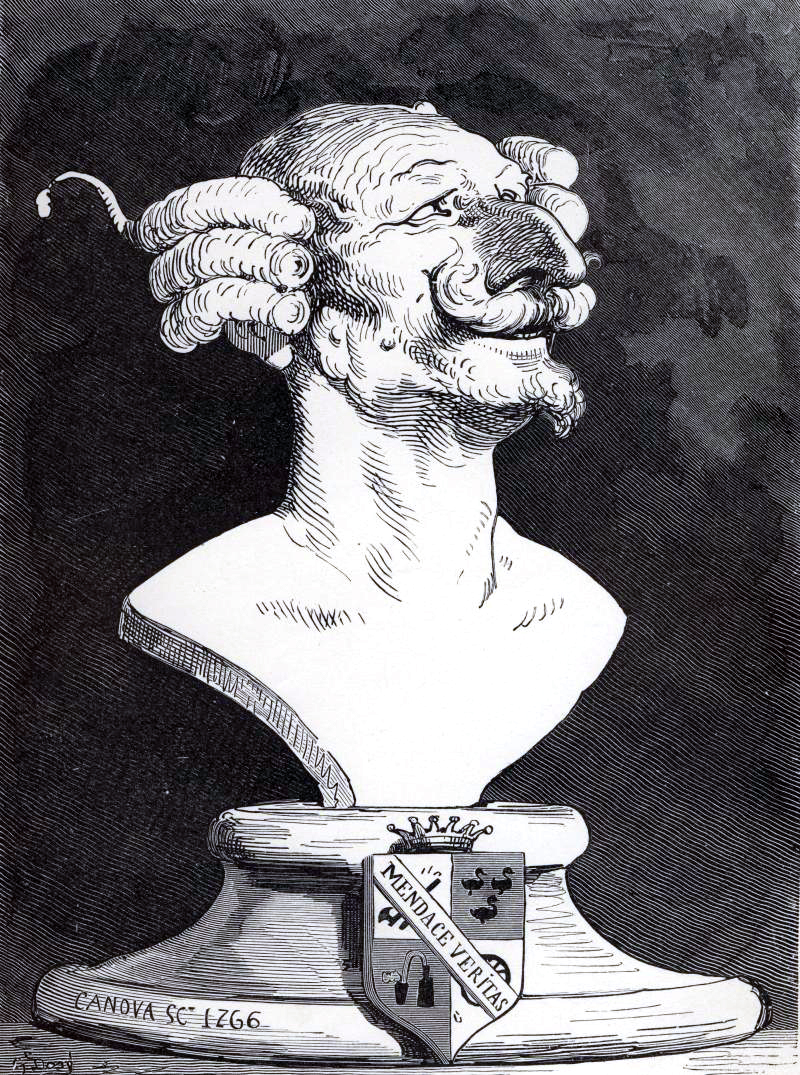
Smoke Gail & Ax’s Little Joker were tobacco and cigarette brands, primarily from the late 19th and early 20th centuries, advertised through trade cards, playing cards, and other ephemera, such as those from Duke, Sons & Co. and Gail & Ax’s.
Around 1900, Little Joker tobacco published a series of adverts based on the fictional German adventurer Hieronymus Karl Friedrich Freiherr von Münchhausen, or Baron Munchausen, originally compiled by Rudolf Erich Raspe (March 1736 – 16 November 1794) and published for English readers in 1785 as The Surprising Adventures of Baron Munchausen (or Baron Munchausen’s Narrative of His Marvellous Travels and Campaigns in Russia).
The Baron’s absurd tales were further embellished and translated back to German by Gottfried August Bürger in 1786. These tales were frequently extended and translated throughout the 19th century, further fictionalised in the 1901 American novel, Mr. Munchausen.
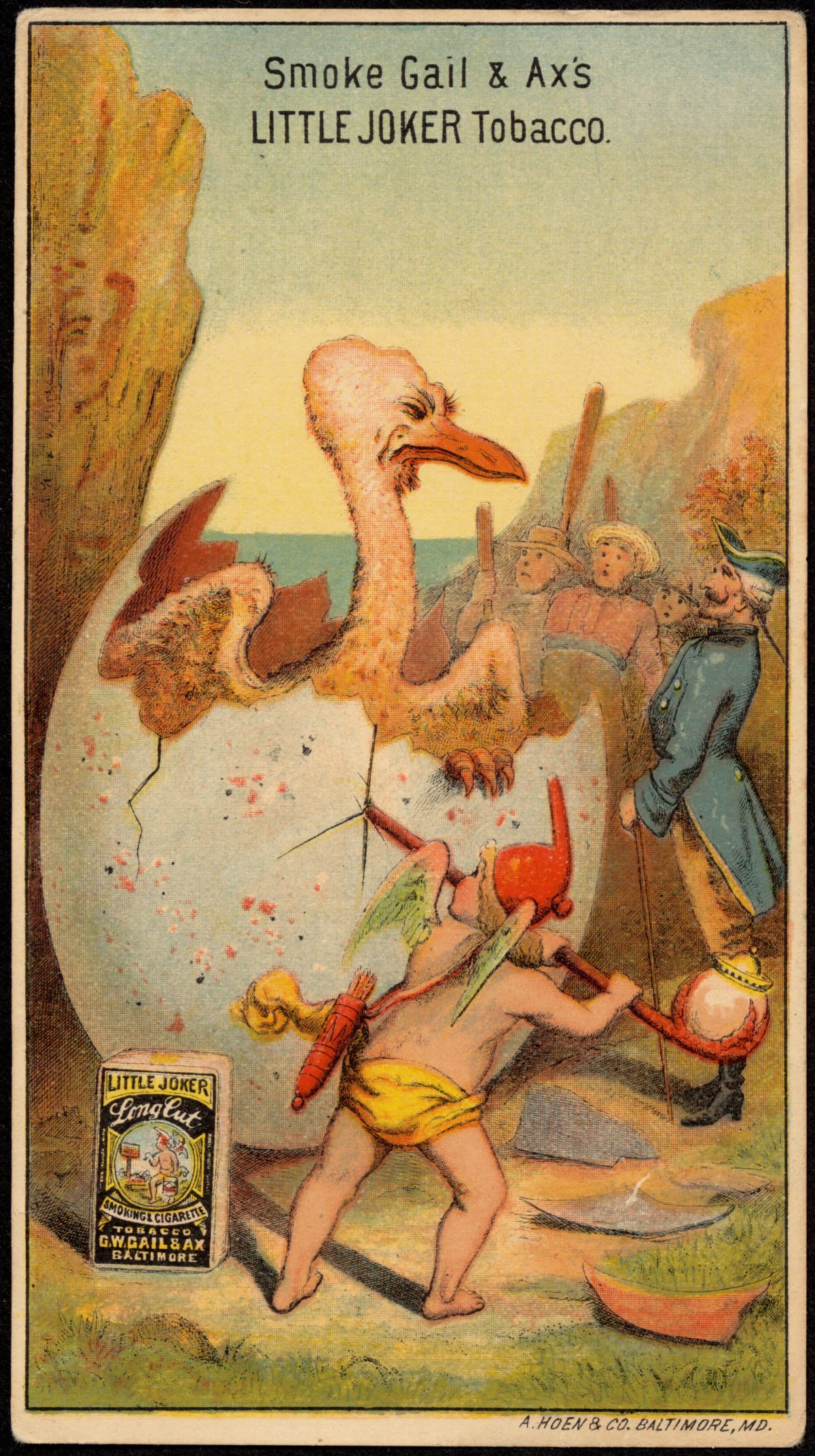
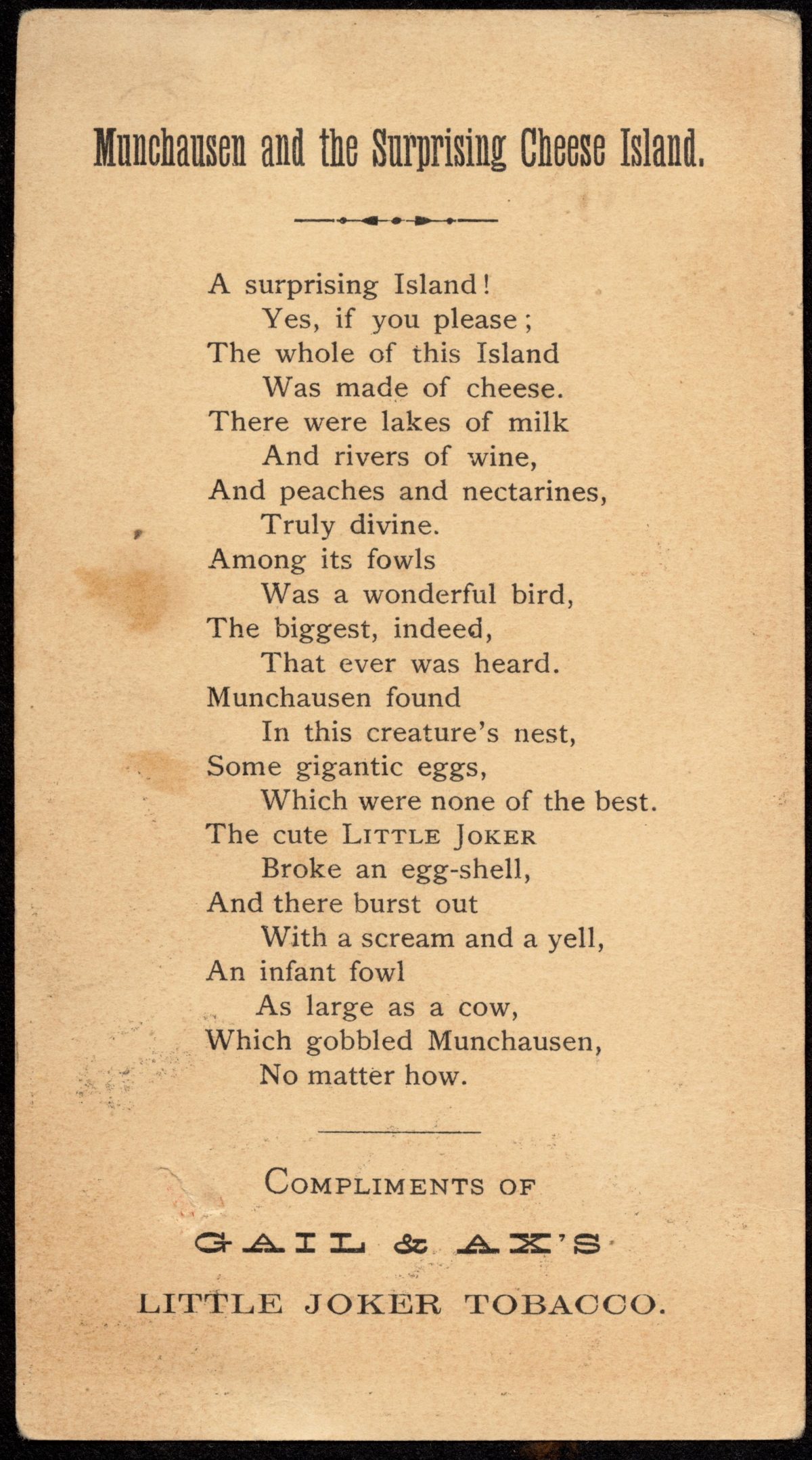
The Real Munchausen
Karl Friedrich Hieronymus, Freiherr (or Baron) von Münchhausen, was a retired German officer who served with a Russian regiment in two campaigns against the Ottoman Empire. By 1760, he was retired and living in the German countryside and telling visitors extraordinary stories of her derring-do.
As for Raspe, well he was born in Hanover in 1737, studied law at the University of Göttingen. He never became a lawyer but worked as a writer, researcher, translator, journalist, librarian, geologist and custodian of coins. When accused of stealing coins from a museum, he fled to England in 1775 to evade arrest.
Rather than going straight, he turned to crime. One caper saw him pretend to discover gold on a Scottish nobleman’s estate, convincing him to invest in a mining operation and then legging it with the cash.
“While in this humble condition and a desperate man, he remembered the stories he had heard at the hospitable table of Baron Münchhausen, and, thinking he could turn them to account, he published … his recollections of them,” wrote the author Samuel Austin Allibone in 1908. The account was “exaggerated and caricatured, no doubt, but generally bearing a sufficient resemblance to the stories the baron had invented for the amusement of his bottle companions to permit their origin to be recognized.”
Fearing confrontation and a day in court, Raspe didn’t add his name to his most famous book and died penniless.
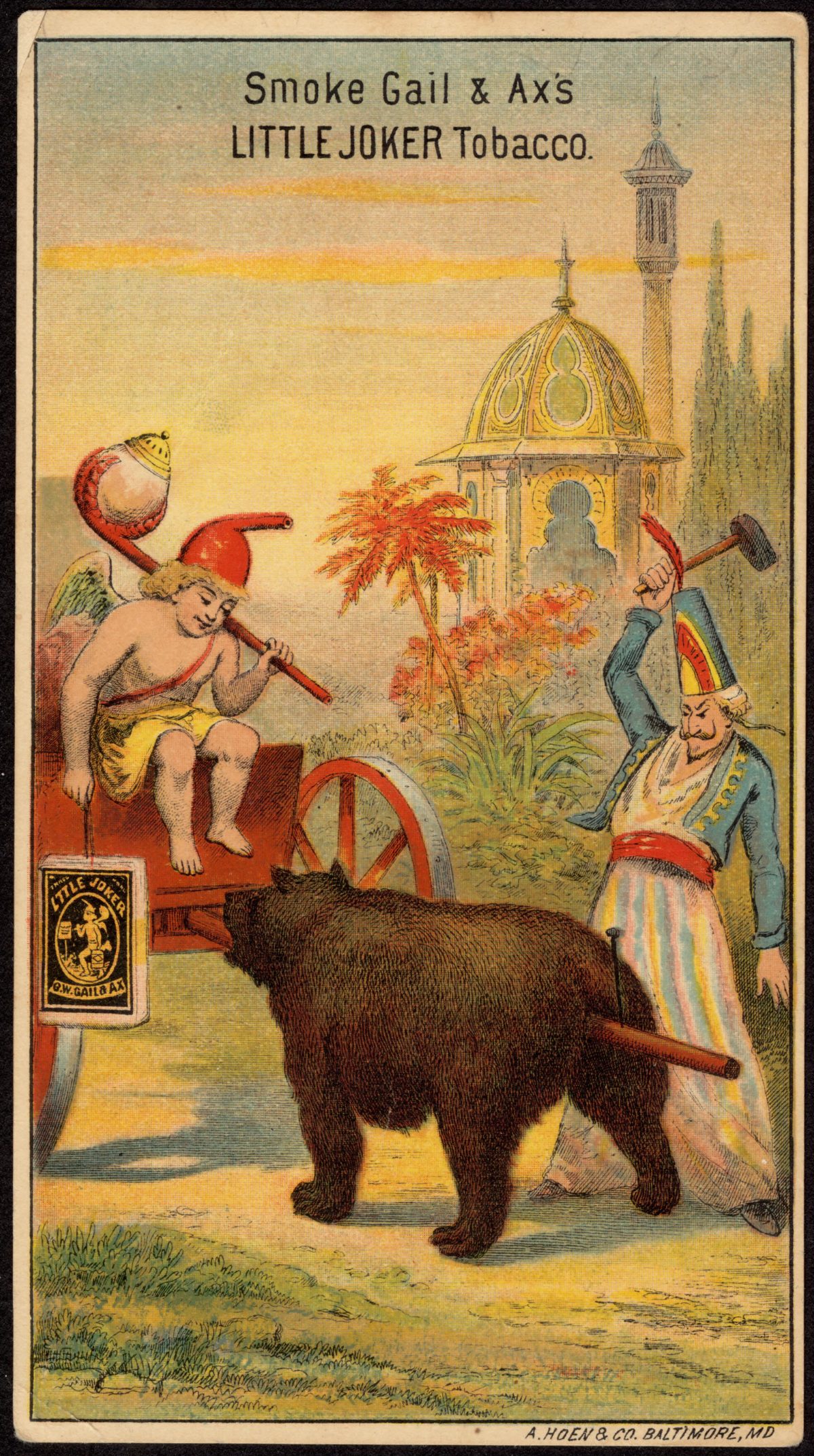
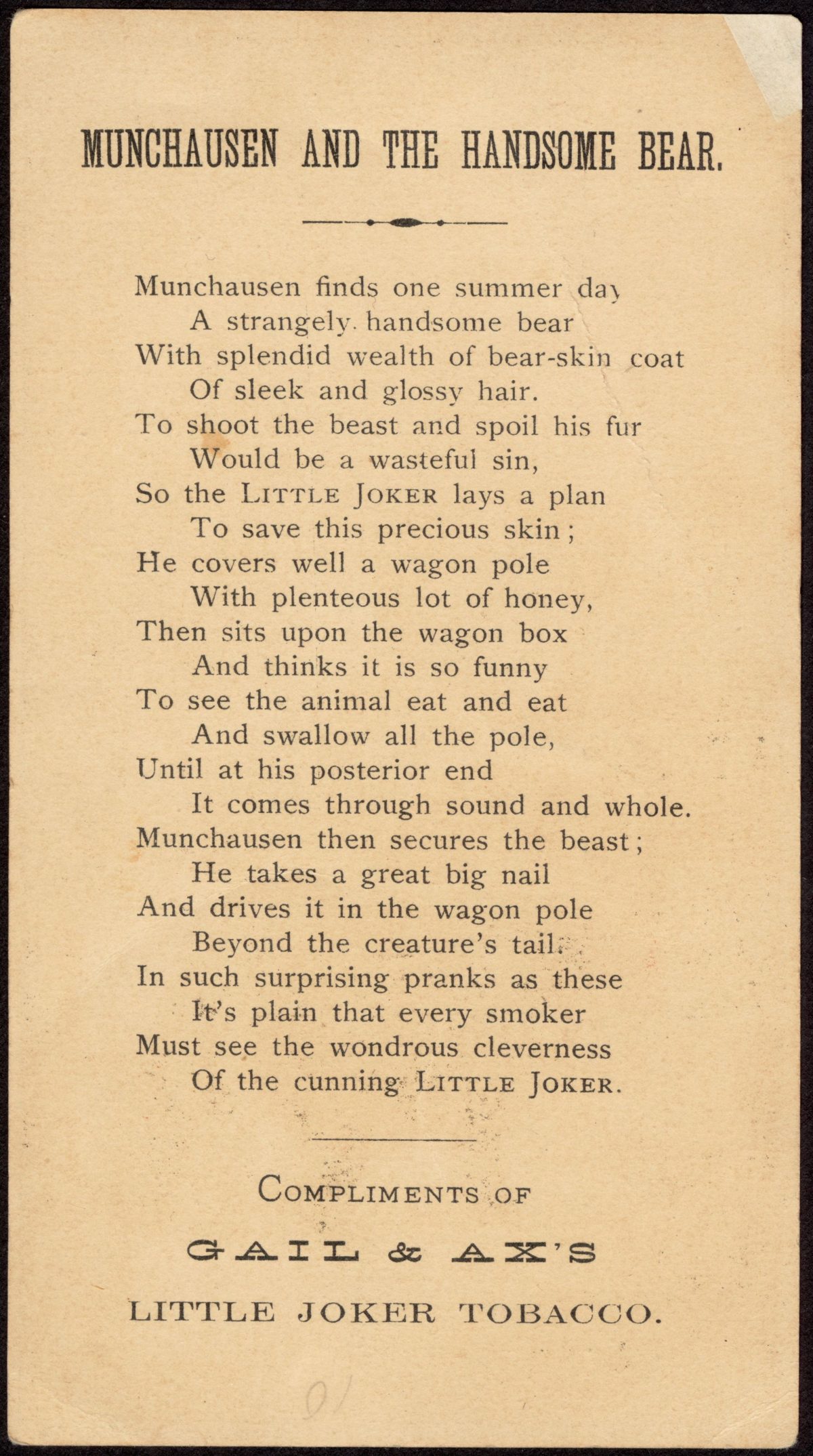
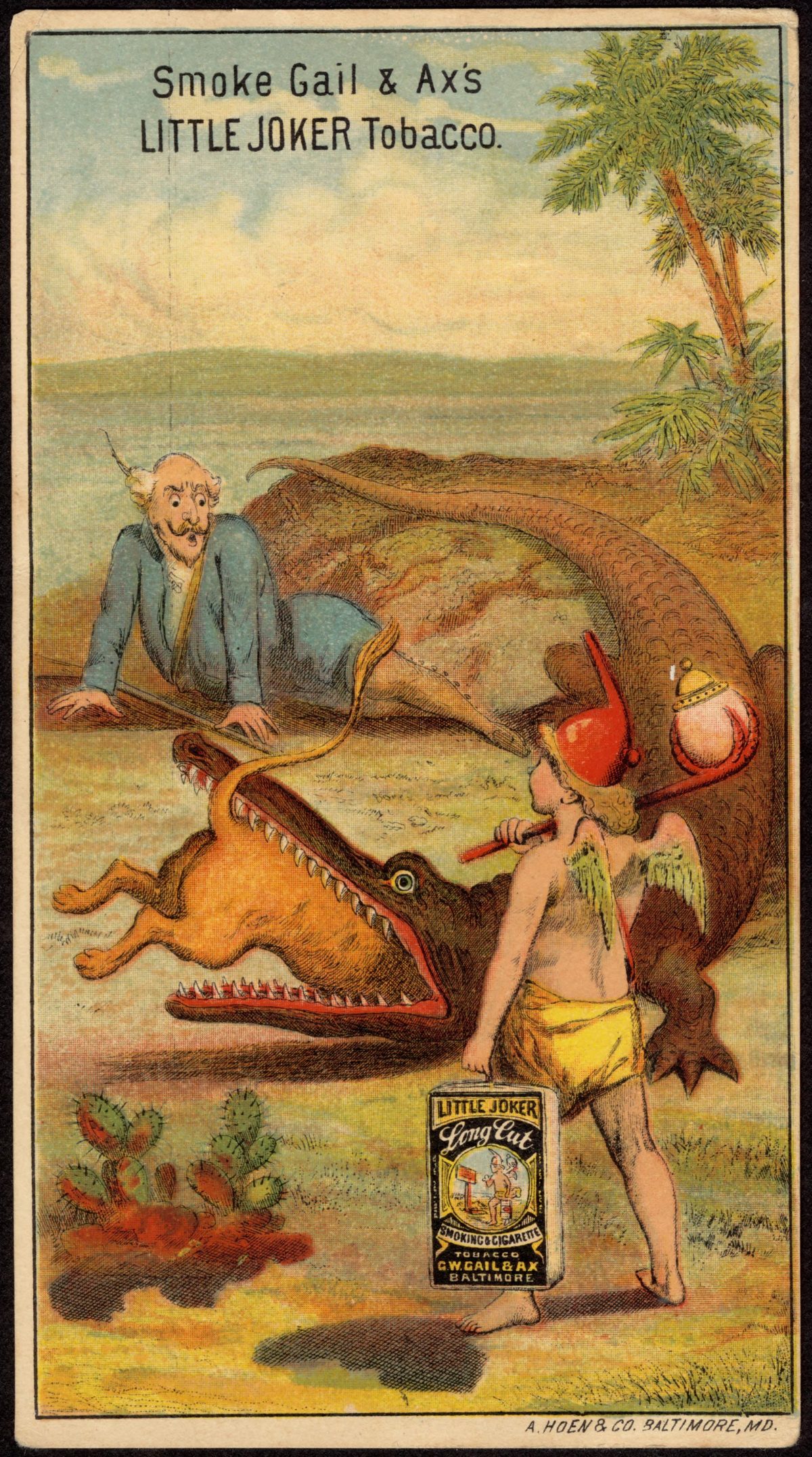
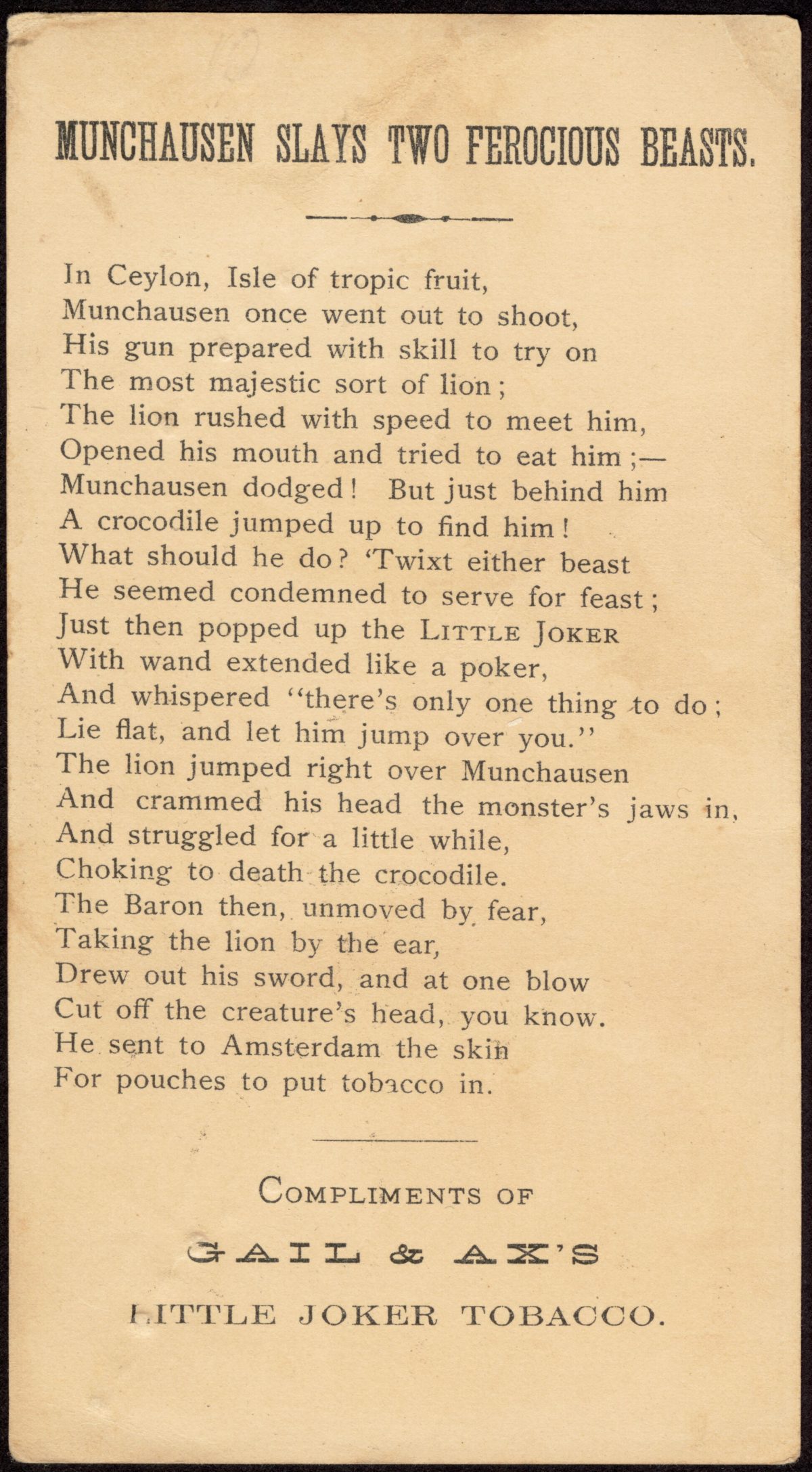
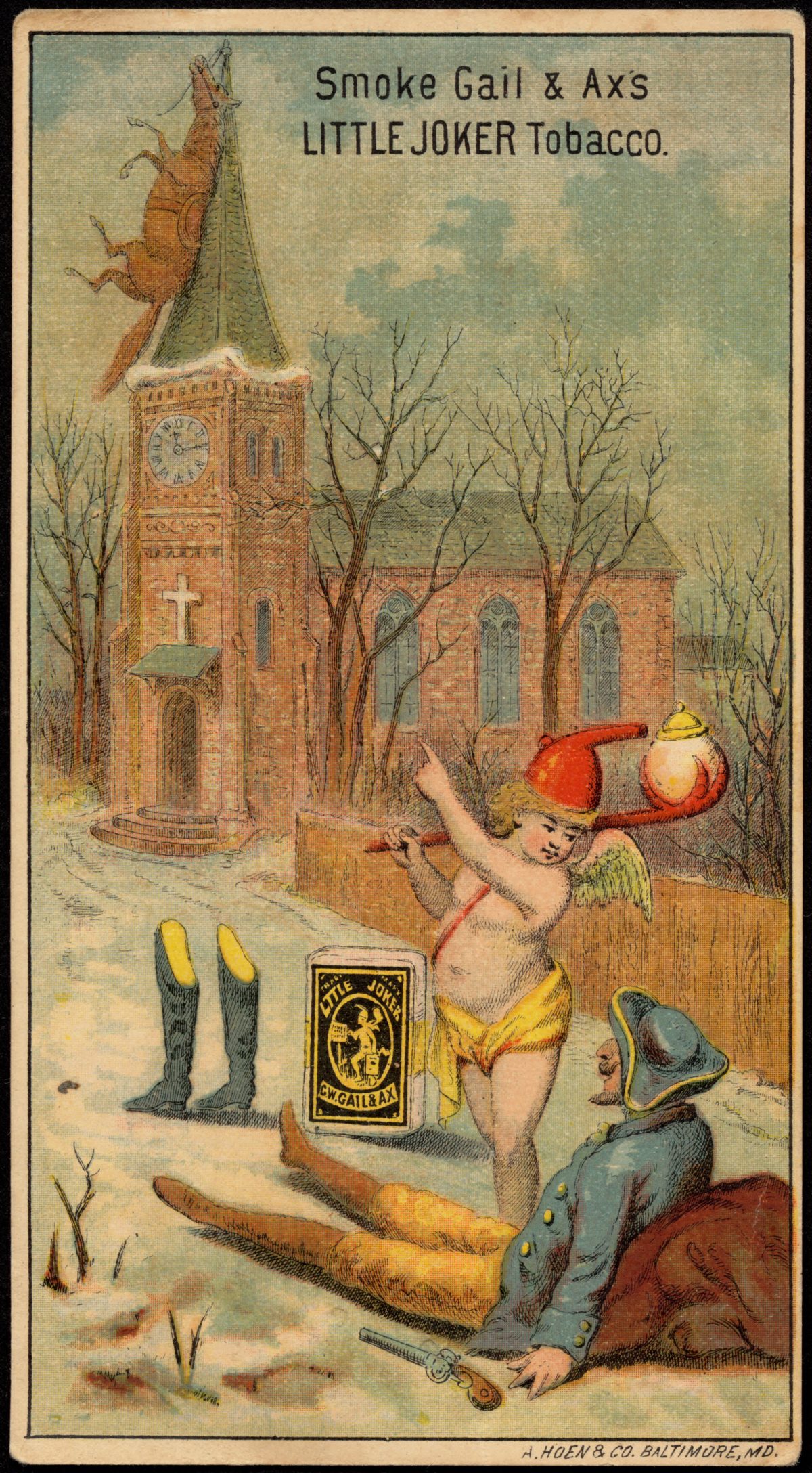
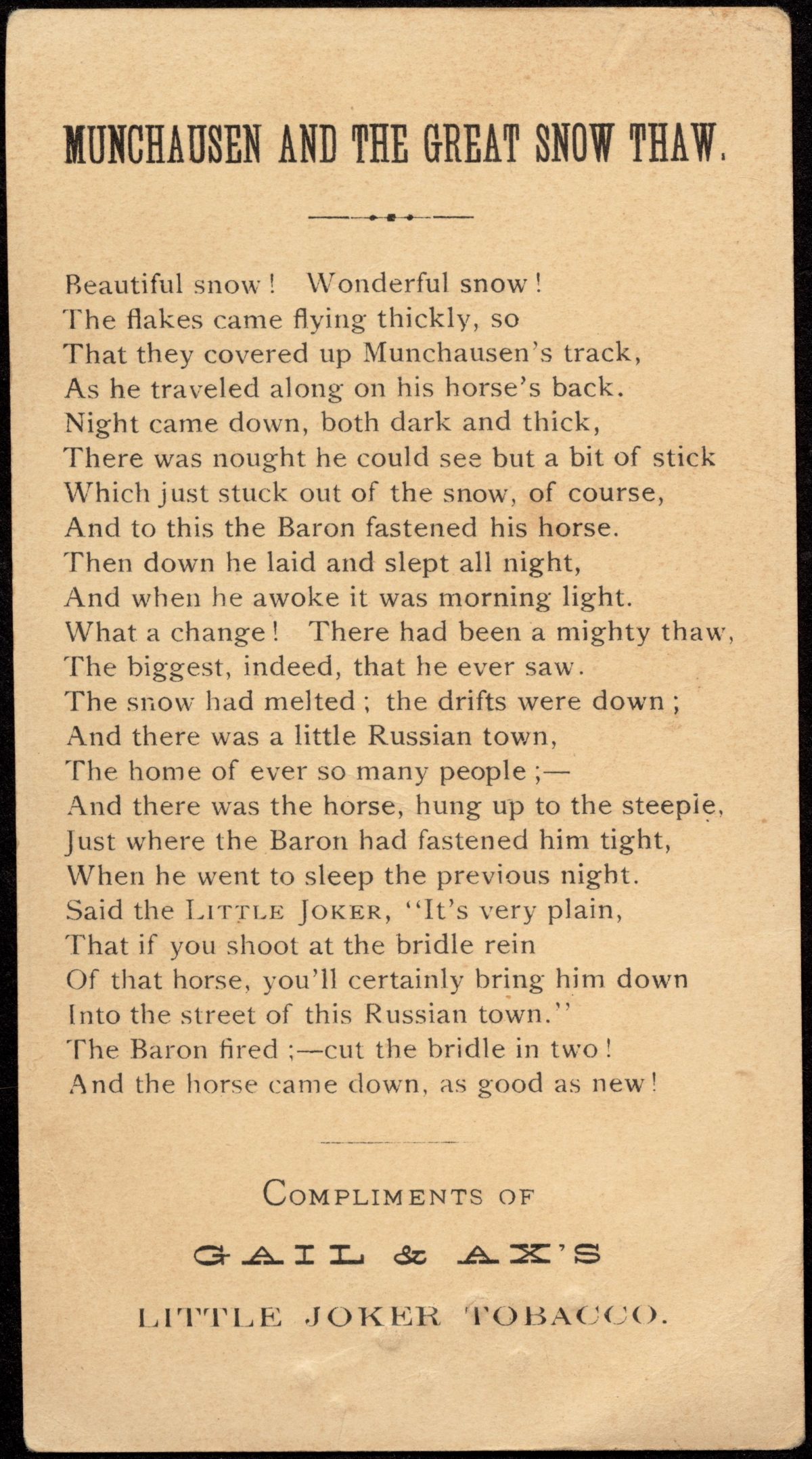
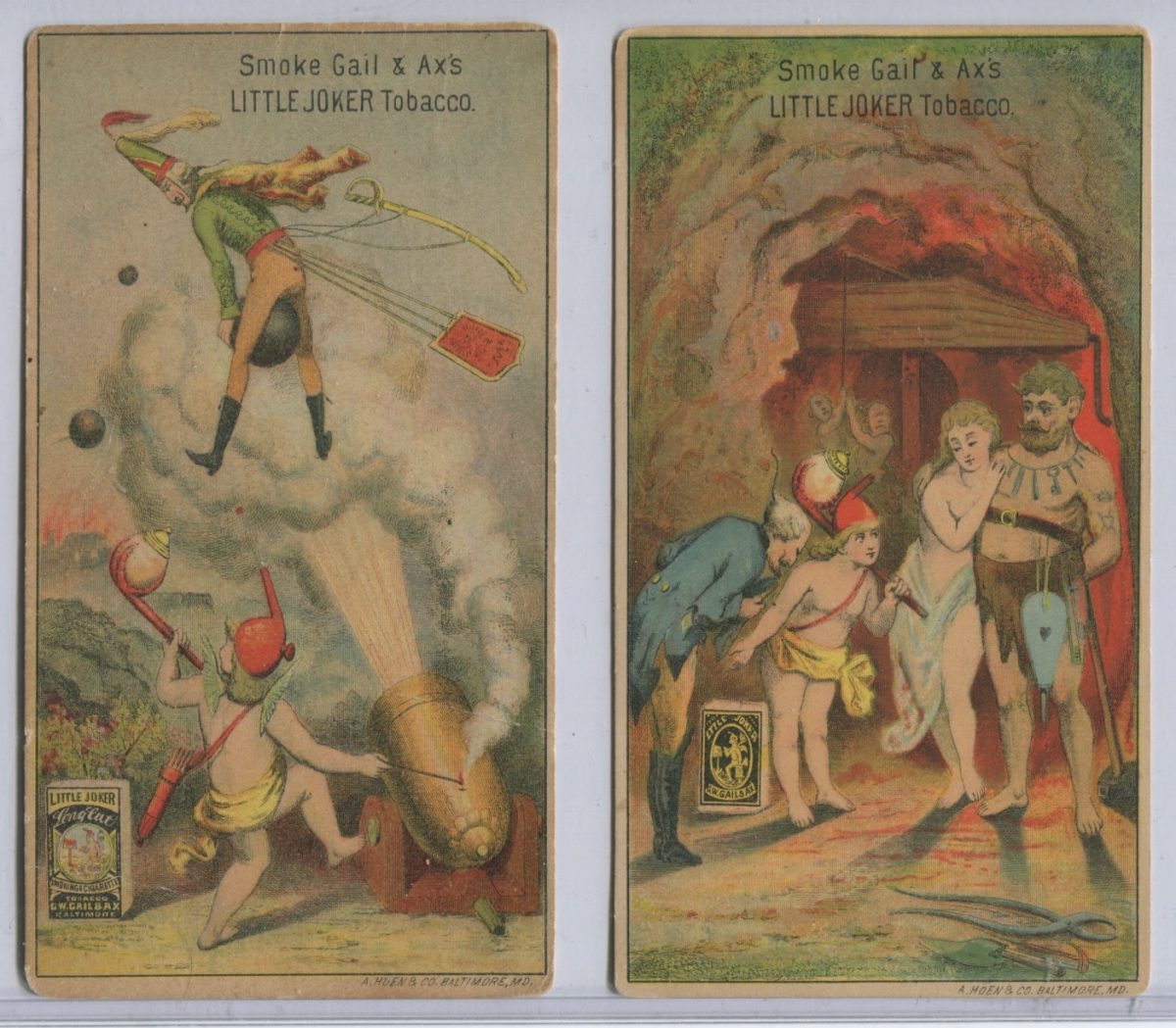
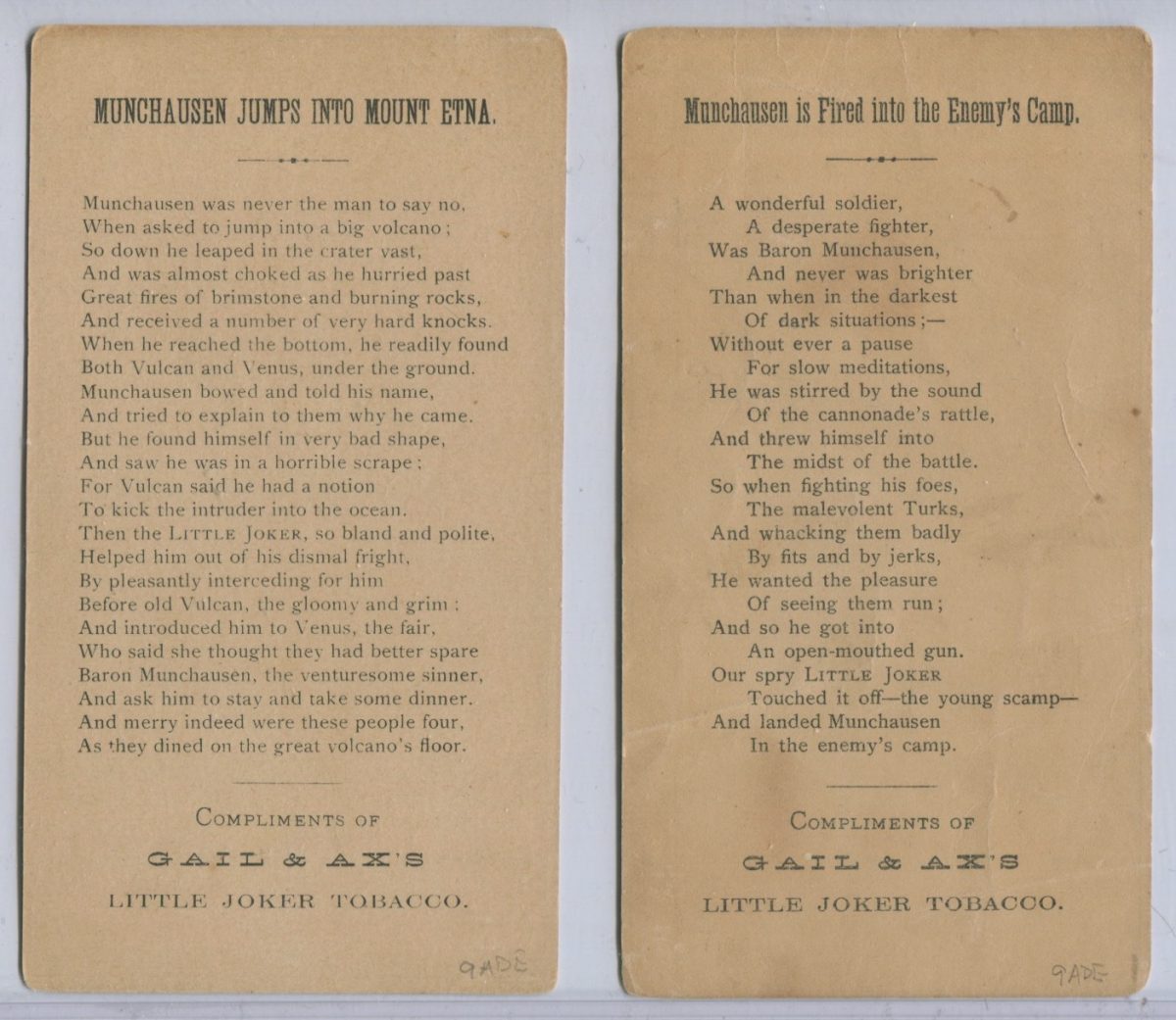
Lead Image: A painting of Baron Munchausen by Gustav Dore.
Would you like to support Flashbak?
Please consider making a donation to our site. We don't want to rely on ads to bring you the best of visual culture. You can also support us by signing up to our Mailing List. And you can also follow us on Facebook, Instagram and Twitter. For great art and culture delivered to your door, visit our shop.











